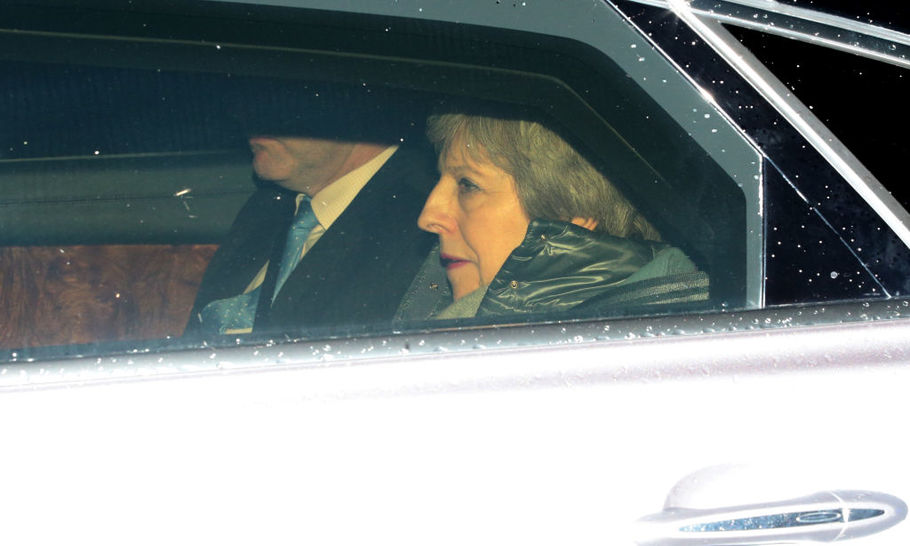Theresa May’s defeat was inevitable, but it means the end of her premiership

Jack Taylor/Getty Images
A second historic defeat for the Government in as many months prompts two questions. First, was it inevitable? And secondly, what does it mean?
With hindsight, it was probably inevitable that Britain would fail to negotiate a deal that would satisfy the House of Commons. Even if Theresa May had never called the disastrous general election in 2017 which deprived her of the narrow majority she had inherited from David Cameron, she would not have been able to unite her party around this dismal deal. Even before they were emboldened by her manifest parliamentary weakness, a substantial number of her MPs, backed by a large proportion of the electorate, were determined to secure a clean break with the EU.
What made this week’s denouement inevitable, however, was the determination of Brussels to teach not only Britain but the other 27 member states a lesson they would not forget. It was only a decade ago, in Article 50 of the Treaty of Lisbon, that the EU even permitted what it now likes to call an “orderly withdrawal”. It was never envisaged that this procedure would actually be invoked. When it was invoked by the UK, a decision was clearly taken to make the process as arduous and painful as possible. In Candide, Voltaire satirised the British for having an admiral executed “pour encourager les autres”. Now the EU has given Britain the Admiral Byng treatment to discourage the others.
That is how Mrs May ended up with a deal that felt more like a diktat. So what does this second — surely terminal — defeat for her deal mean, and where do we go from here?
The logical conclusion would now be to prepare to leave in just over a fortnight. We are good at making the best of a bad job. Almost all the damage done so far has been due to uncertainty, so the priority should be to end that uncertainty as soon as possible. As Peter Lilley explained in his piece for TheArticle yesterday, many smaller deals to regulate our future relationship with the rest of Europe have quietly been done. The much-cited figure of a trillion pounds, which banks have supposedly moved out of London as a precaution ahead of March 29, will soon flow back into the City once we remove the uncertainty.
But that is not what Parliament is likely to do this week. Firm in their belief that a better deal must exist, to which the EU would instantly agree if only it were on the table, the Opposition parties are almost certain to extend the period of uncertainty, by rejecting no-deal and sending Mrs May back to Brussels to seek an extension of Article 50. It is far from certain that the EU will grant such a request, but we can be sure that Messrs Juncker, Tusk, Barnier and Selmayr will relish the spectacle of a British Prime Minister returning as a supplicant.
Anyone less dogged than Mrs May would rather resign than play the part of Neville Chamberlain. She, though, believes that reaching an agreement, however disagreeable, is her solemn duty. Stooping rather than standing at the despatch box last night, her voice hoarse and her eyes hooded, Theresa May looked like a broken woman. Her frail health is clearly suffering: as a Type 1 diabetic, she simply cannot keep summoning up the energy to keep burning the candle at both ends. What keeps her going now is sheer inertia.
The country has had enough. Parliament seems unwilling to bring its ordeal to an end. The only constitutional force that can now act is the Cabinet. Unlike the country, the Cabinet has the power to remove a Prime Minister. Usually they jump before they are pushed: Churchill, Eden, Macmillan, Wilson all resigned, ostensibly for health reasons; Thatcher and Blair also left office without a formal meeting of the Cabinet. But in every case, their ministerial colleagues had made it clear to them that their time was up. Hence it is now up to senior members of the Cabinet to remind the Prime Minister of her promise to step down before the next election — an election that is now very likely to come sooner than 2022 and may well become necessary in the very near future.
Mrs May has done her duty by demonstrating that the EU is not prepared to negotiate a deal that is acceptable to Parliament. The meaning of her second “meaningful” defeat in that chamber ought to have been obvious to everybody, except perhaps to her. It was a reality check: her hopes of a good deal with the EU have proved to be a chimera. Her duty now is to make way for someone else capable of facing this reality and leading the country in a different direction. She was right first time: no deal really is better than a bad deal.





